AITA for telling my roommate that her anorexia is not my problem?
Two young women, both just 23, find themselves caught in a silent battle against the relentless summer heat. One returns home each day, drained and soaked from a grueling outdoor job, seeking solace in the cool embrace of the air conditioner.
Yet, in the stillness of the night, she wakes suffocating in sweat, only to discover her roommate has quietly turned off the AC, leaving her vulnerable and exhausted.
The unspoken tension rises as the truth emerges—not from financial strain, but from a deeper disconnect. The heat is more than just discomfort; it’s a threat to her health and well-being, a source of sleepless nights and fading strength.
In a moment of fragile honesty, she reaches out, hoping for understanding and compassion, offering to share the burden, yearning for relief in a home that should be a refuge.

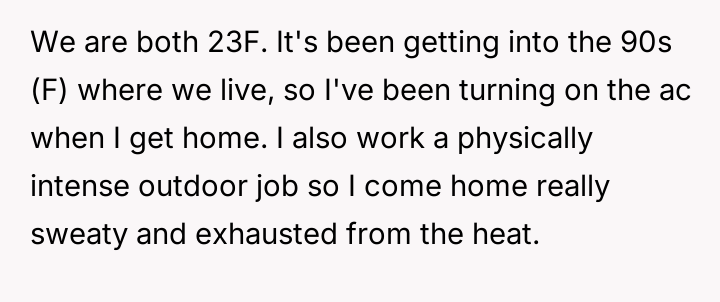
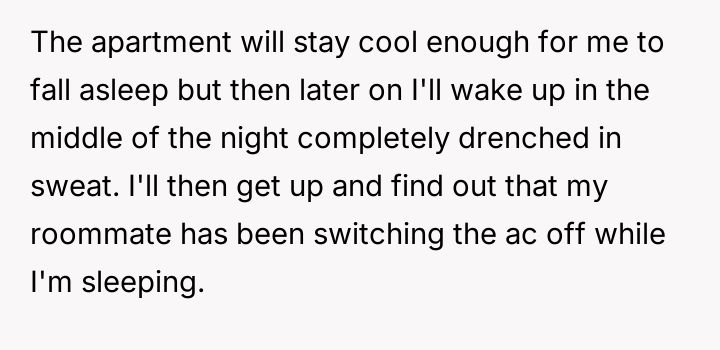
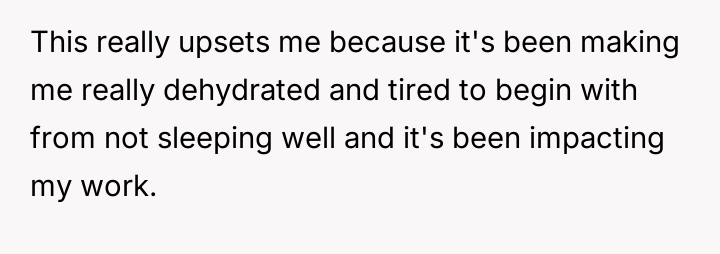
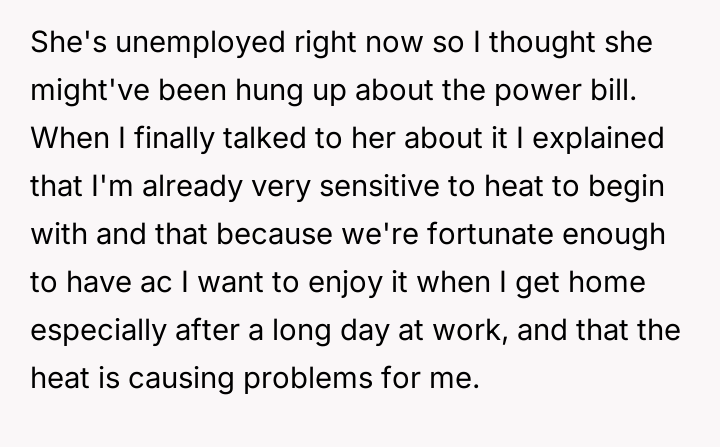
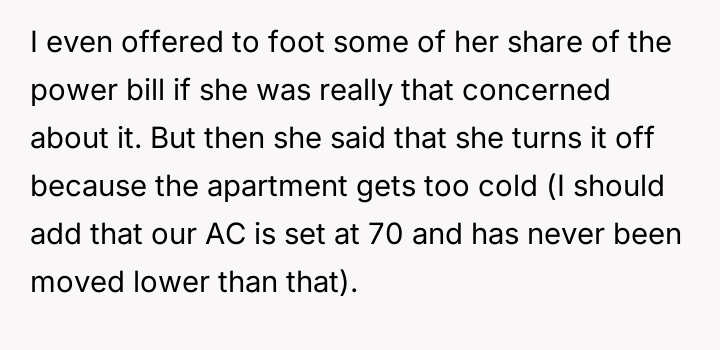
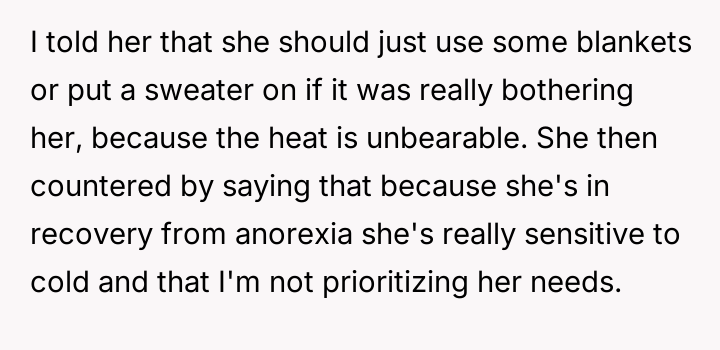
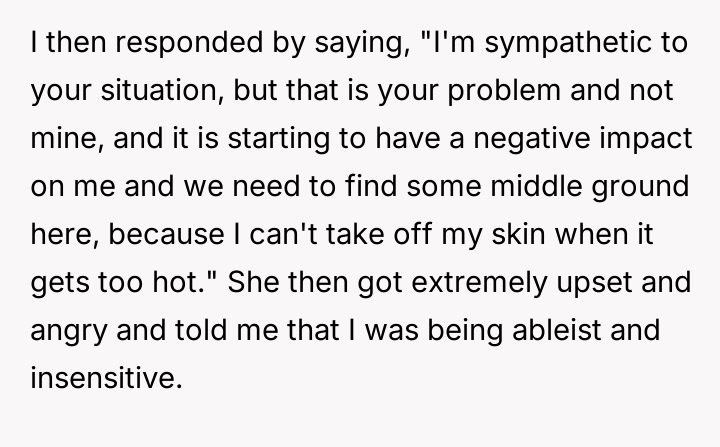

Subscribe to Our Newsletter
No spam, unsubscribe anytime. Privacy Policy
When the Crowd Speaks, It Echoes Loudly:
Users didn’t stay quiet — they showed up in full force, mixing support with sharp criticism. From calling out bad behavior to offering real talk, the comments lit up fast.
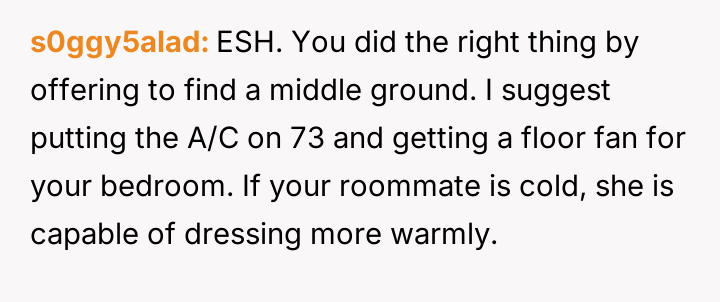

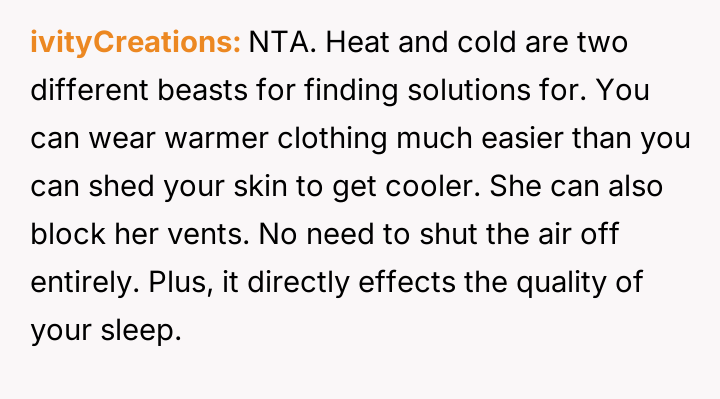
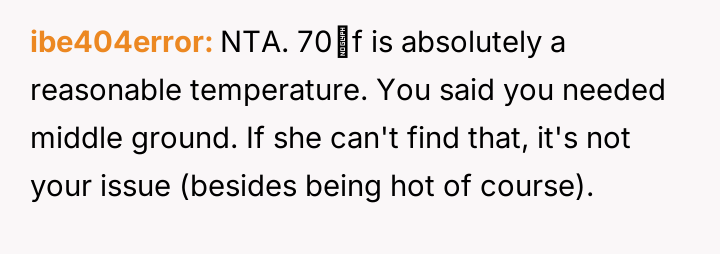

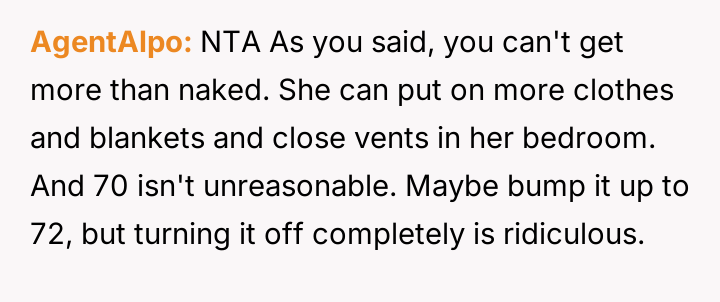
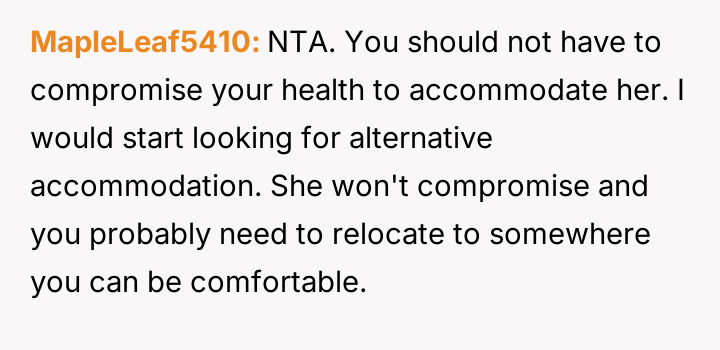
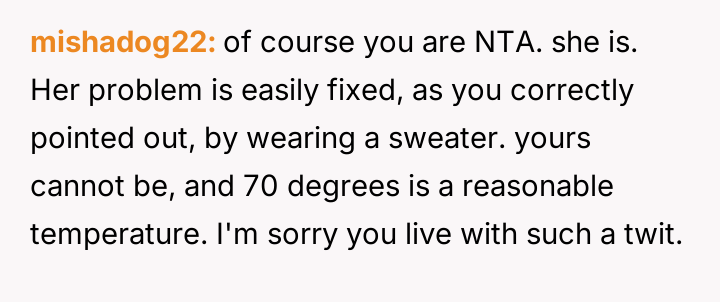
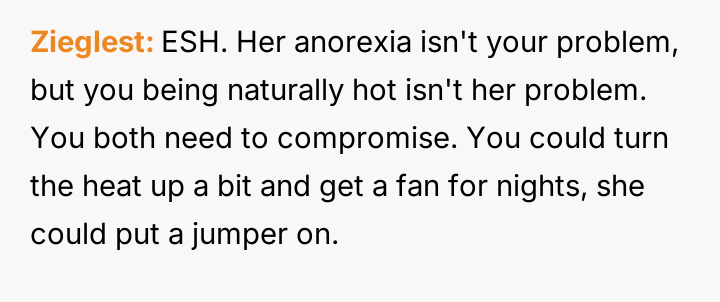
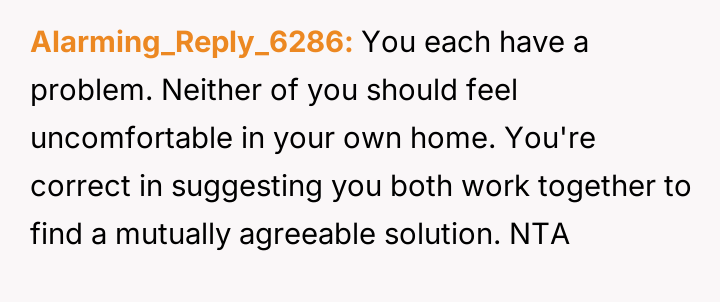

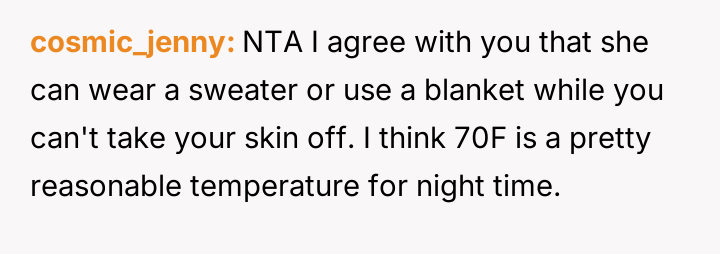


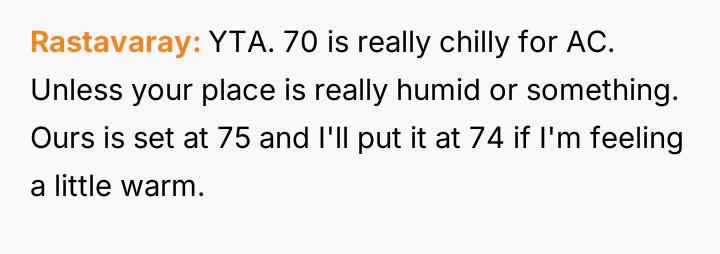
The Original Poster (OP) is experiencing negative health and work impacts due to extreme heat, leading them to assert their need for the air conditioning to remain on, even offering financial compensation to ease the roommate's power bill concerns.
The roommate, citing sensitivity due to anorexia recovery, refuses compromise, demanding the AC be completely turned off, and labels the OP's boundary setting as insensitive.
Given that the OP's health is suffering from excessive heat and the roommate refuses anything less than the AC being entirely off, is the OP justified in prioritizing their immediate physical well-being over the roommate's preference for cold temperatures, or does the roommate's stated medical sensitivity require the OP to endure the heat?

